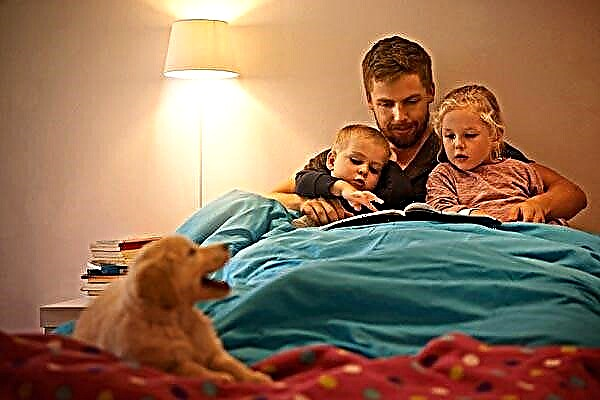Unfortunately, very often children behave badly, not in the way their parents expect from them: they are capricious, swear, throw tantrums and even fight. Why it happens? Perhaps they have a bad temper? Before deciding which educational method to apply to your child, you need to understand the likely reason for his action. What does he want to say with his bad behavior?

1. He wants attention
If children want attention, bad behavior is often a surefire vehicle for gaining attention. When parents are talking on the phone, chatting with friends, watching TV or cooking in the kitchen, children feel left out. They may scream, throw a tantrum, or hit their brother to gain their interest. Let it be negative attention, but the adult will look at them, talk and take some time out of his busy schedule.
- What to do?
Ignoring negative behavior and rewarding (even praising) good deeds is one of the best methods of dealing with a little bully.
2. He copies other people's behavior
Children learn to behave by looking at other people. The child tries on models of other people's behavior, looking at their peers in kindergarten, watching cartoons, playing computer games and, most importantly, copying their parents.
- What to do?
Keep track of what your preschooler watches on TV, what games he prefers to play, which of his friends he communicates with most often. And, of course, be the model of the kind of behavior that you expect from your child.
Read also:7 examples of how parents reward bad behavior in children
3. He tests the boundaries of what is permitted
When you set the rules, introduce a daily routine, and tell your child what not to do, he will definitely want to know how serious it is. "You cannot take away toys from your brother!" - you pronounce it strictly, and a three-year-old baby will definitely check why it is impossible, whether you always do not allow it and what will happen for breaking the rule. What if tomorrow will be possible?
- What to do?
It is important to set clear boundaries and communicate the consequences. If your child thinks there is a small chance that your rule is not being followed, it will be tempting to break it. Make it clear that for each violation, a negative consequence awaits him.
4. He lacks skills
Sometimes behavior problems are associated with a lack of skill. For example, a child who lacks social skills may hit another toddler. Children who cannot speak may bite peers or parents.
- What to do?
Teach your child new skills to help them behave in the right way. You should not punish or teach him a lesson, it is better to show an alternative to bad deeds so that he can learn from his mistakes.
5. He wants independence
Children often break rules and behave defiantly in an attempt to defend their independence. Three-year-old kids constantly say “I myself”, although they are not yet ready even for elementary independence. But they will still shout, refuse your help and behave disrespectfully many times more often than usual.
- What to do?
Give your baby freedom with clear boundaries. Remember that during these years his independence, self-esteem grows and the foundations of his personality are laid.
6. He cannot control his emotions.
Sometimes children have no idea what to do with their feelings. They can easily become aggressive when angry. "Why did you hit Seryozha?" - Mom asks the little fighter. He only shrugs in response.
- What to do?
Preschoolers should be taught in healthy ways to express feelings such as sadness, frustration, anxiety, and anger in order to prevent bad behavior. And already a seven-year-old child, who has learned to control emotions, will think many times before hitting his neighbor on the desk.
7. His needs are not met
When a young child is hungry, tired, or unwell, he uses tantrums to "tell" about it. And how else to convey to mom that he was tired in kindergarten, a little sick or wants to eat?
- What to do?
For example, take your toddler to the store only after he sleeps in the afternoon, or bring sandwiches with you for a quick snack. Continually ask your child how he is feeling and look for clues that may indicate unmet needs.
By the way, those children whose desires are chronically not satisfied may have serious problems in the future.
8. He fights for power
The struggle for power and the desire to control one's own behavior often lead to bad deeds - tantrums, negativism, and refusal to act. “Misha, clean the room,” the mother demands, and the child demonstratively turns away to the computer and continues to play another shooter.
- What to do?
One way to avoid power struggles is to offer your child two options. For example, ask: "When are you going to clean the room: now or will you wait until the cartoon is over?" By offering a choice, you give the baby some control over the situation and remove the reason for the argument.
9. He always gets what he wants
Perhaps the most common cause of bad behavior is that children behave this way because it is effective and leads to the desired outcome. For example, a kid, having cried and having arranged a scene in the store, receives the coveted car. The little manipulator quickly realizes that loud roar is a great way to get whatever he wants.
- What to do?
Disregard children's whims and do not try to fulfill any whim. Their number (and cost) will only grow over time.
10. He needs the help of a specialist
Sometimes the reasons for bad and sometimes dangerous behavior are a variety of mental disorders. In particular, a child with attention deficit hyperactivity disorder may behave impulsively and aggressively. A child with developmental delays is often a bully just because he does not understand the rules of behavior.
- What to do?
If you suspect that your preschooler has health problems or developmental disabilities, be sure to see a pediatrician or psychologist. After all, bad behavior in this case is a sign of much more serious problems.
- How to fix bad behavior in a child in 7 days
- Why are children rude?
- 10 games to overcome child aggression
- To punish a child for accidental misconduct or not?
- What should a parent not do when a child is unbearable?
It turns out that almost any bad deed by a baby can be seen as another way to find mutual understanding with their parents. But if a child feels that he is safe, he is understood, loved and appreciated, then he loses the need to misbehave, misbehave and stage scenes.
Another video about the reasons for the child's bad behavior:
How to avoid causes of bad behavior in your child?



